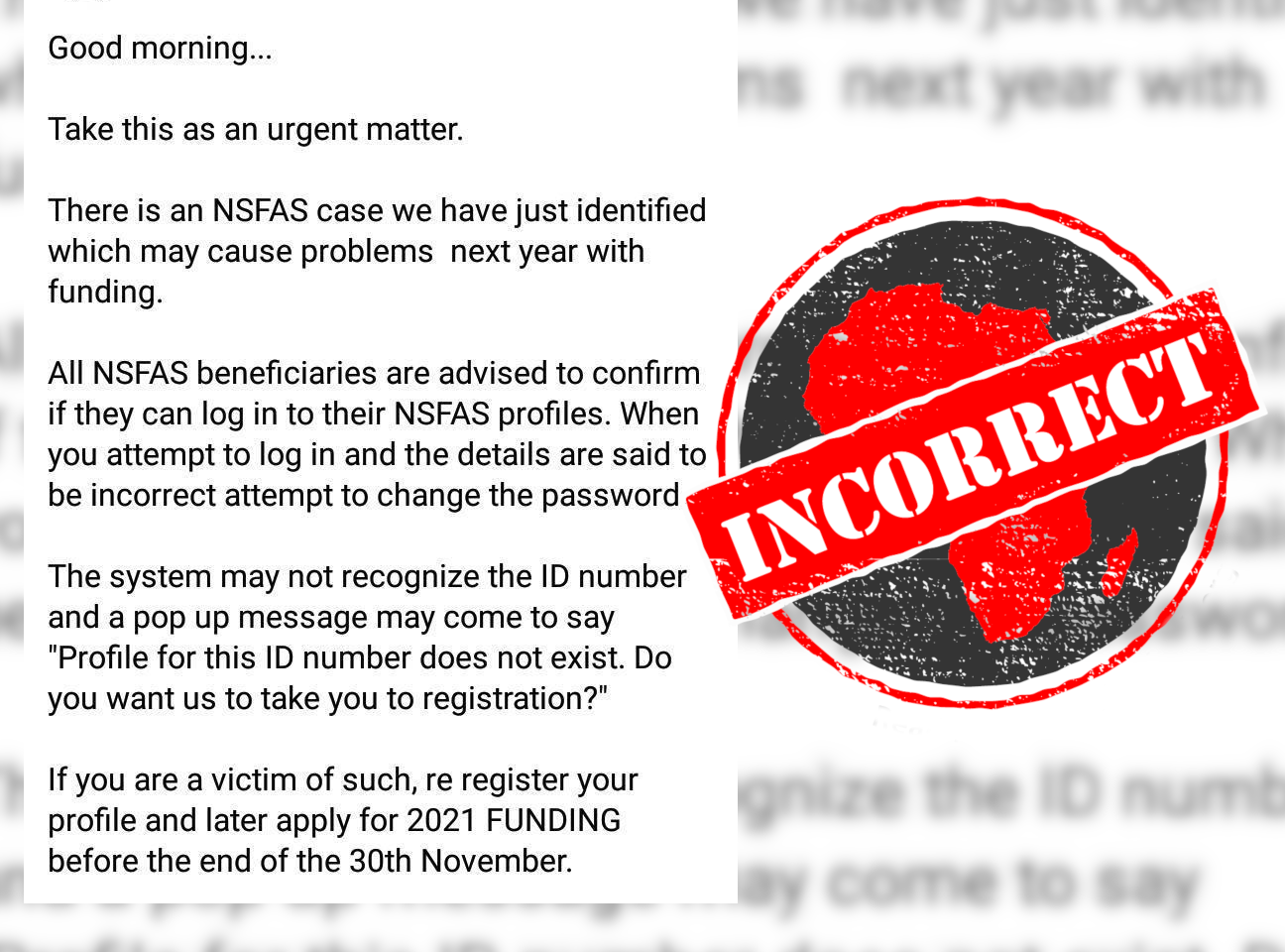NSFAS, the government’s National Student Financial Aid Scheme, helps fund the after-school education of students from poor and working class families.
But do beneficiaries have to reapply for funding in 2021 because of a system error? We checked.

‘Fake news alert’
The message was originally posted on the Facebook page “University of Limpopo politics”.
“All NSFAS beneficiaries are advised to confirm if they can log in to their NSFAS profiles,” it reads. “The system may not recognise the ID number and a pop up message might come to say ‘Profile for this ID does not exist. Do you want us to take you to registration?’”
If this happens, the message says, you need to re-register your profile and apply for funding again before 30 November.
The post appears to have been deleted from the “University of Limpopo politics” page, but screenshots continue to do the rounds online.
NSFAS has been quick to counter the claim. On 30 November it released a statement on its official Facebook and Twitter pages, dismissing the message as “fake news”.
FAKE NEWS ALERT!! You are NOT required to reapply if:
1. You applied for #NSFAS2021 funding during August 2020 & November 2020. 2. You are currently funded for NSFAS in 2020 & you will be continuing your undergrad qualification in 2021. pic.twitter.com/godbArwRaE
— NSFAS (@myNSFAS) November 30, 2020
The scheme says beneficiaries are not required to reapply if they applied for 2021 funding in August or November 2020. Only people who have not yet applied should do so.
If you are unsure about information from a large organisation, make sure to consult its official social media pages and website. – Africa Check
Republish our content for free
For publishers: what to do if your post is rated false
A fact-checker has rated your Facebook or Instagram post as “false”, “altered”, “partly false” or “missing context”. This could have serious consequences. What do you do?
Click on our guide for the steps you should follow.
Publishers guideAfrica Check teams up with Facebook
Africa Check is a partner in Meta's third-party fact-checking programme to help stop the spread of false information on social media.
The content we rate as “false” will be downgraded on Facebook and Instagram. This means fewer people will see it.
You can also help identify false information on Facebook. This guide explains how.



Add new comment